Search Images
Browse Content (p. 1451)
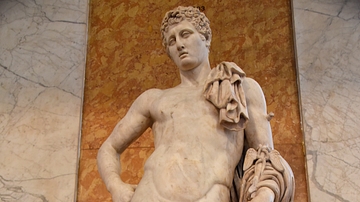
Image
Hermes Farnese
Statue of Hermes (Mercury) with winged sandals, holding his herald's staff. Formerly in the Farnese Collection in Rome. Roman, 2nd century CE, after a Greek original of the 4th century BCE the school of Praxiteles. (British Museum, London)
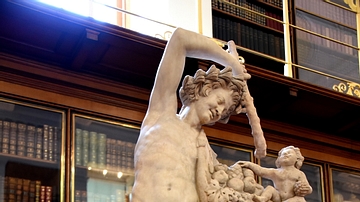
Image
Faun with Infant Bacchus
Statue of a dancing Faun with the infant Bacchus, the God of Wine. Formerly in the collection of The Grand Duke of Tuscany, then in the Farnese Collection in Rome. Roman, 2nd century, CE. (The British Museum, London)
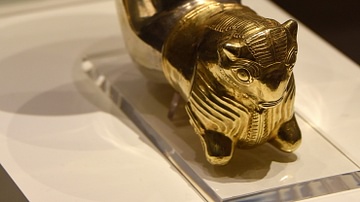
Image
Achaemenid Silver and Gold Horn Cup
This object combines both Syrian and Persian styles. While the shape of the cup echoes a classical Persian wine-pourer (rhyton), it actually functioned as a drinking cup. Large animal-headed cups were popular in Syria in earlier periods...
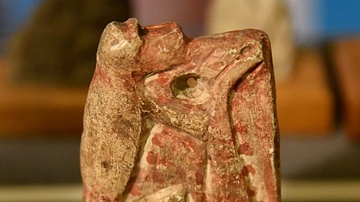
Image
Statuette of a Monkey Playing a Harp
This is a statuette of a monkey. The monkey appears to play a harp. From Amarna, Egypt. Reign of Akhenaten, circa 1353–1336 BCE. The Petrie Museum of Egyptian Archaeology, London (with thanks to The Petrie Museum of Egyptian Archaeology...

Image
Achaemenid Lion Weight
One side of this heavy weight is inscribed in Aramaic with "correct according to the stater of silver". This probably refers to the use of a weight standard based on the silver coins known as staters. This object weighs just over 31 kg, which...
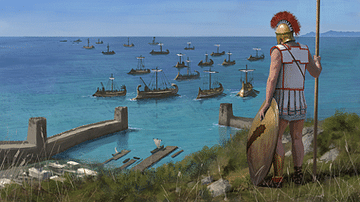
Image
Greek Warships
An artist's impression of what a fleet of Greek warships may have looked like.
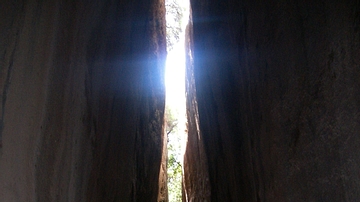
Image
Cevlik Tunnel, Turkey
The Roman-built Cevlik tunnel in Turkey. The 1.4 km (0.87 miles) tunnel was built to divert the floodwaters threatening the harbour of the ancient city of Seleuceia Pieria, and had inscriptions on the entrance, still visible today, that indicated...
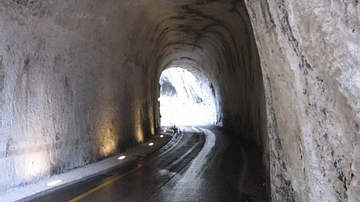
Image
Furlo Tunnel
The Roman-built Furlo tunnel. The tunnel is 37 m (121 ft) long and 6 m (20 ft) high and was built by emperor Vespasian in 69-79 CE.
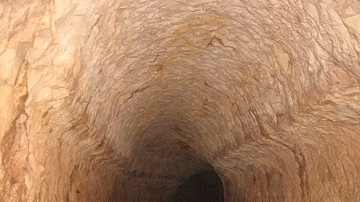
Image
Gadhara Aqueduct, Jordan
The Roman-built Gadhara aqueduct, Jordan. 2nd century CE.

Image
Greek Trireme in Battle
An artist's impression of what a Greek trireme warship may have looked like.